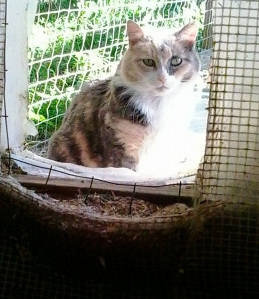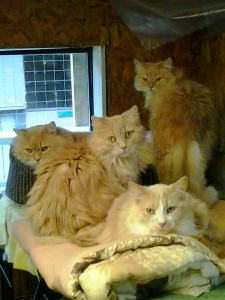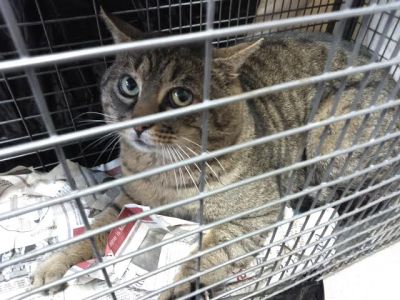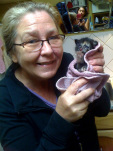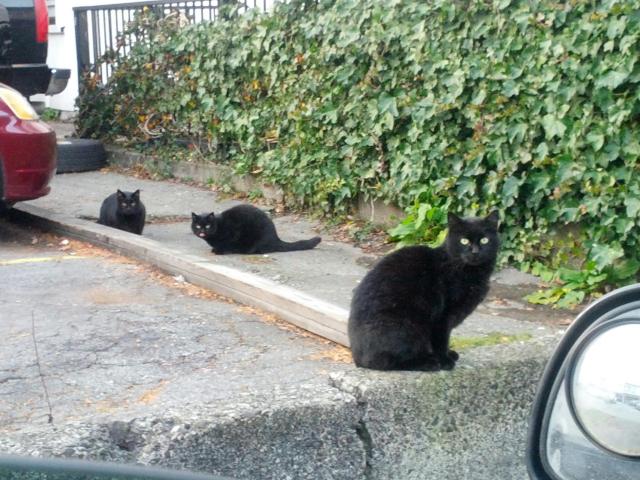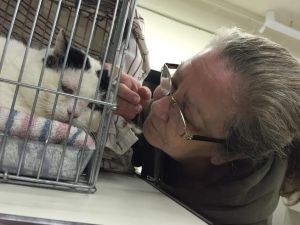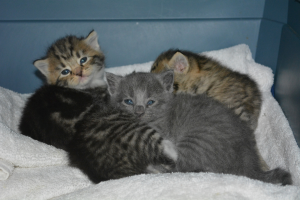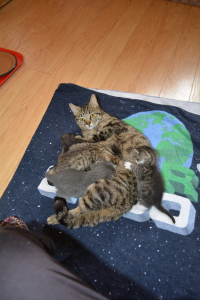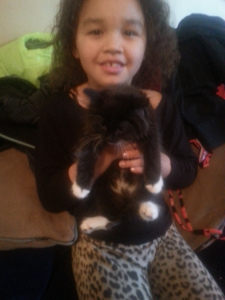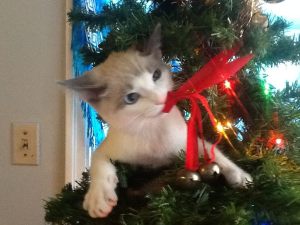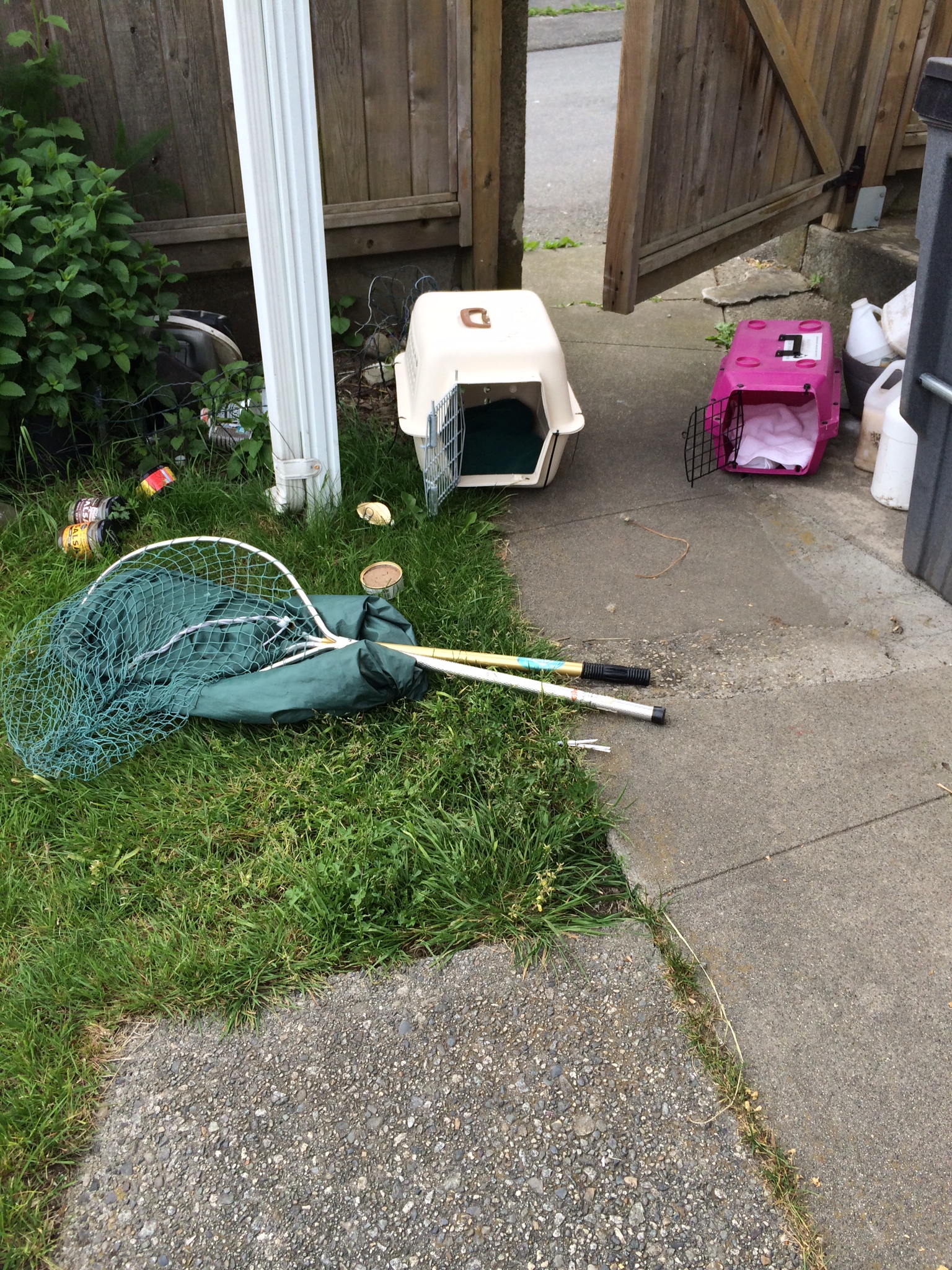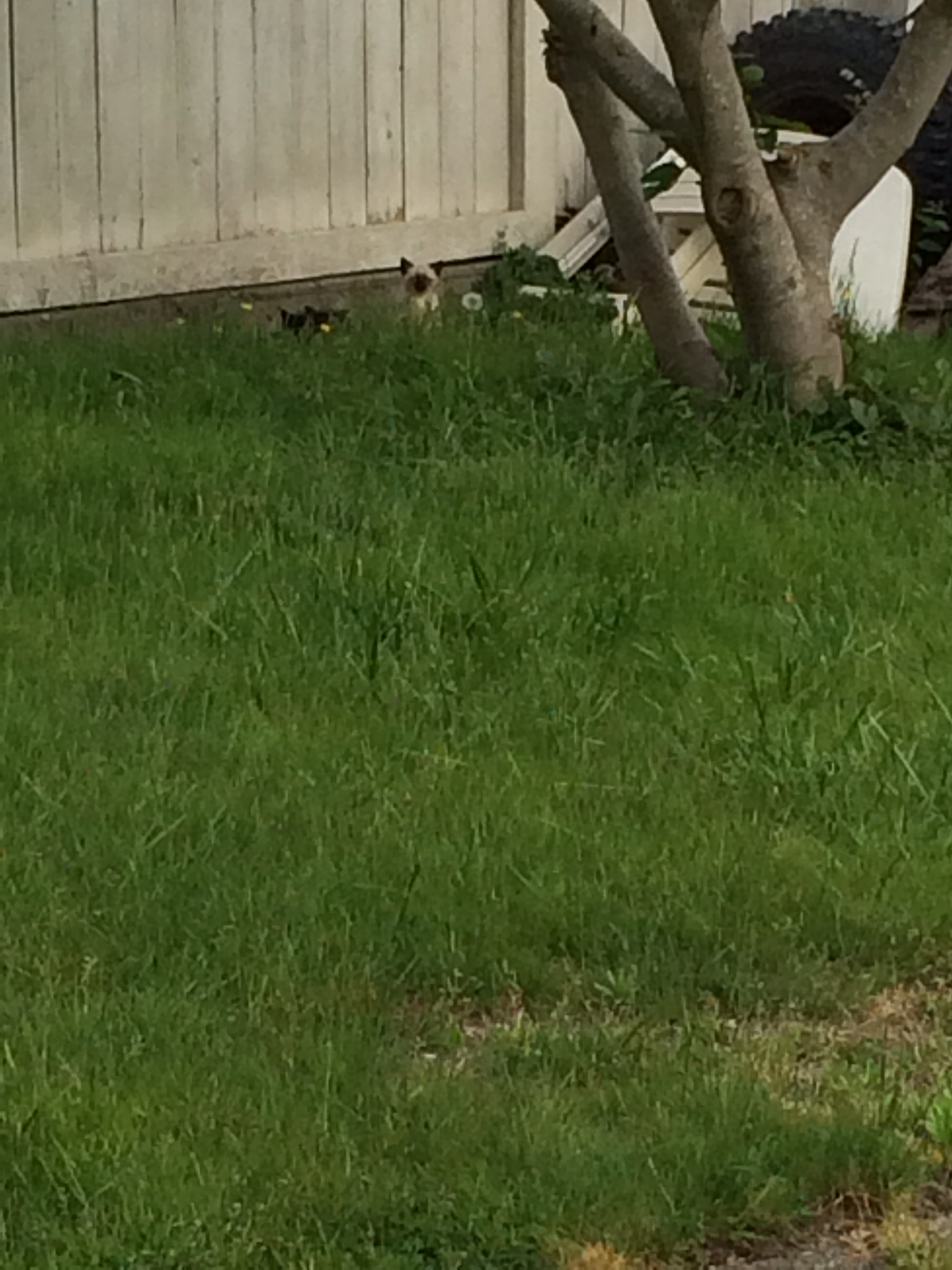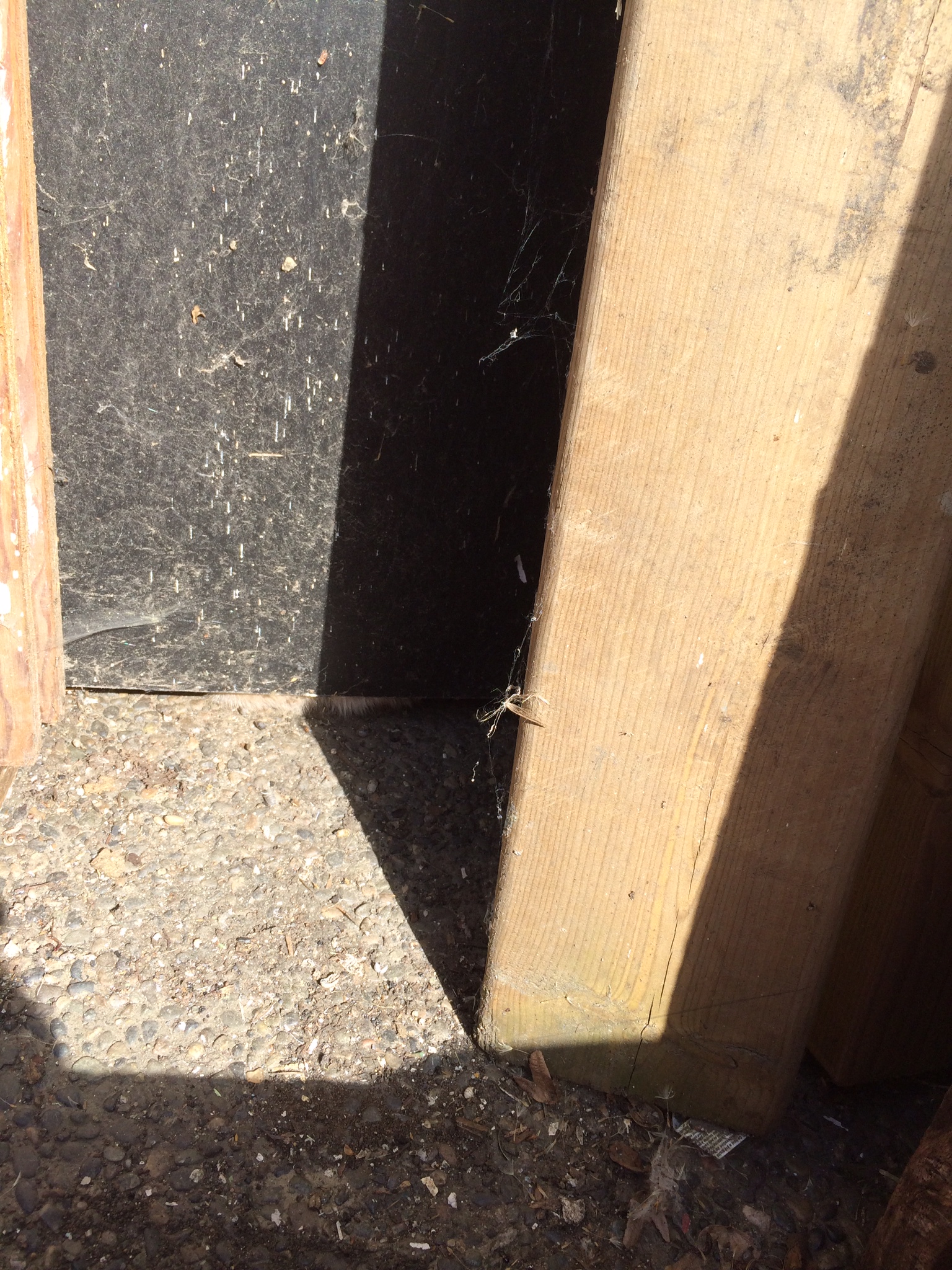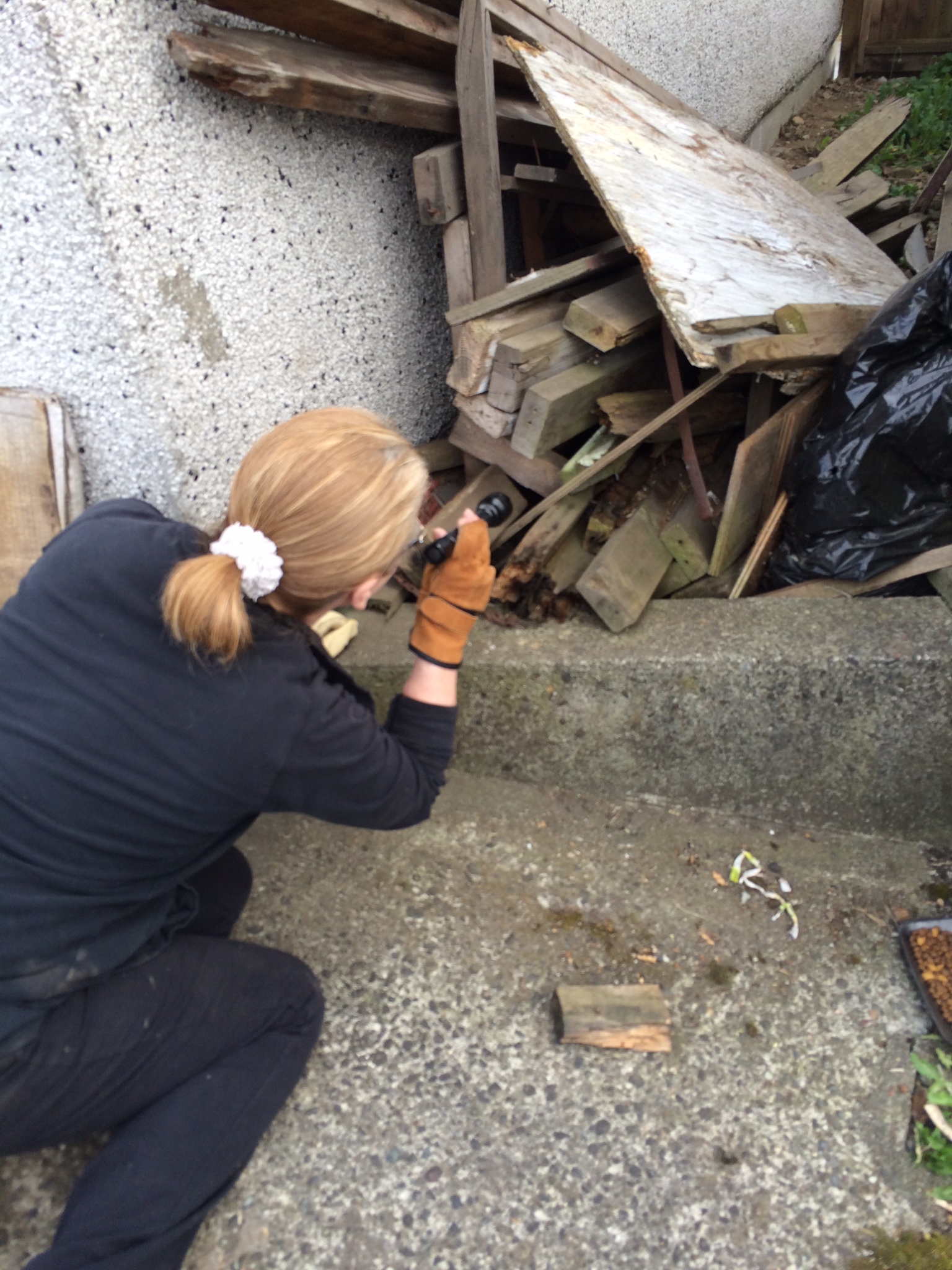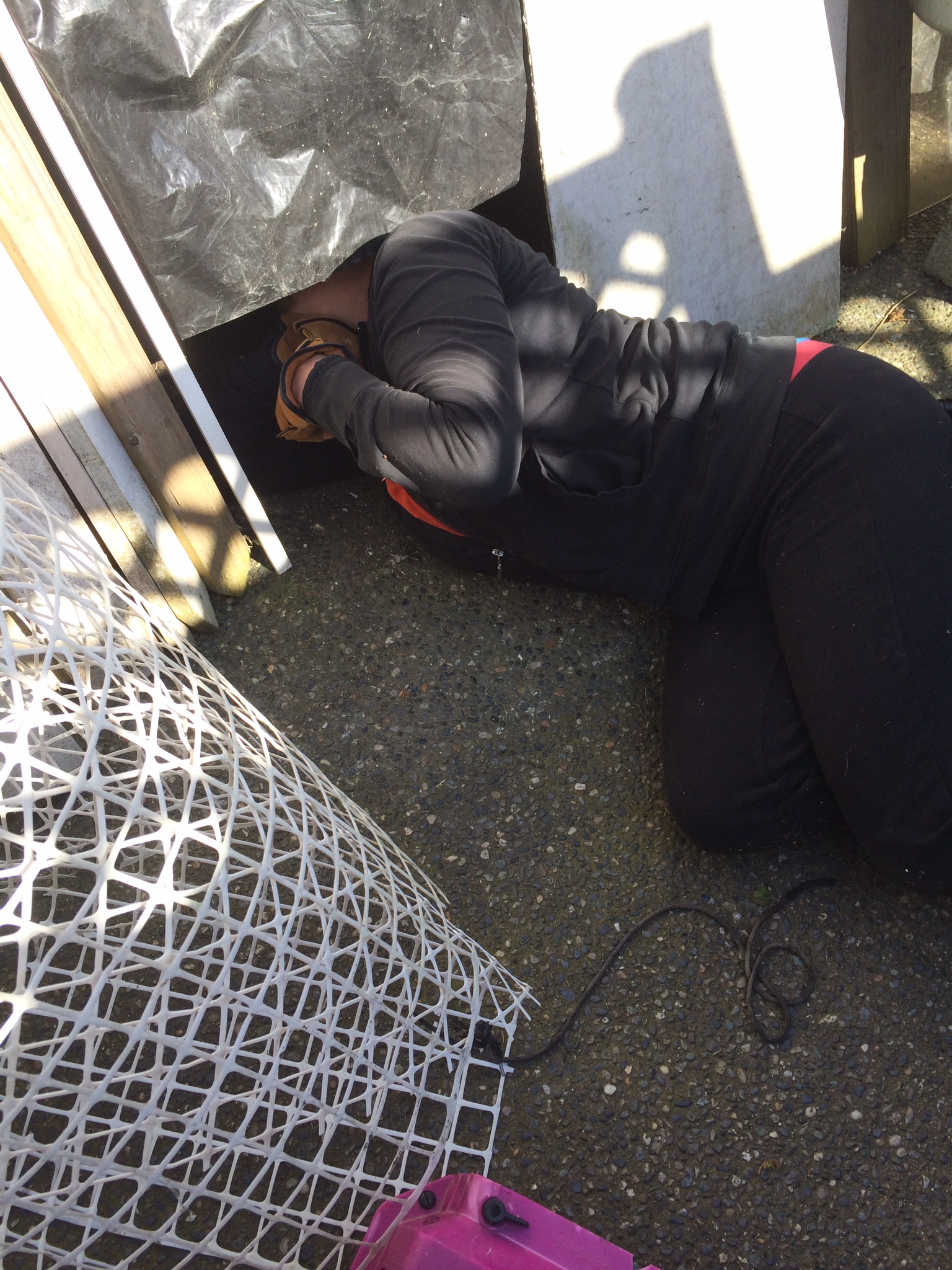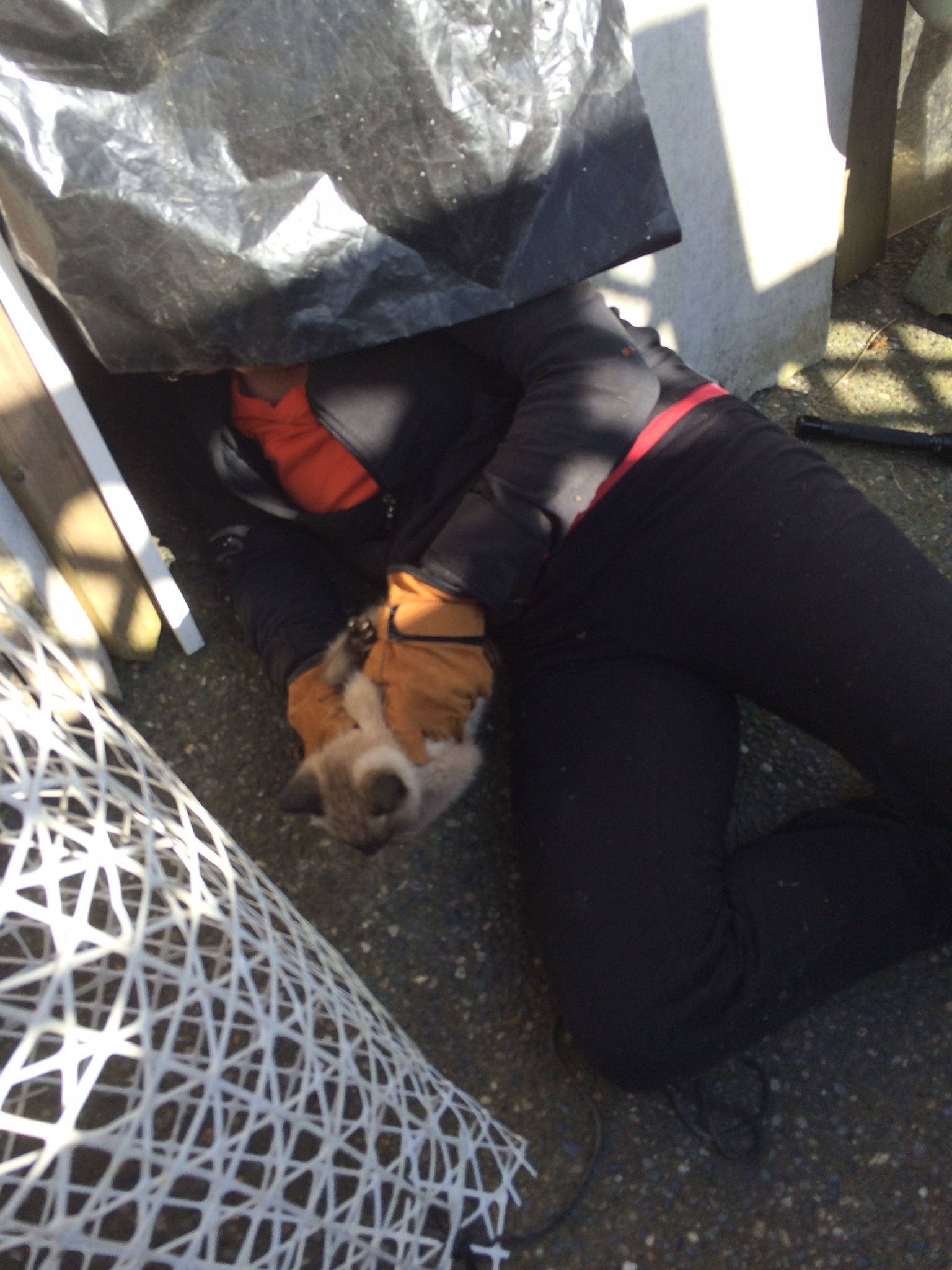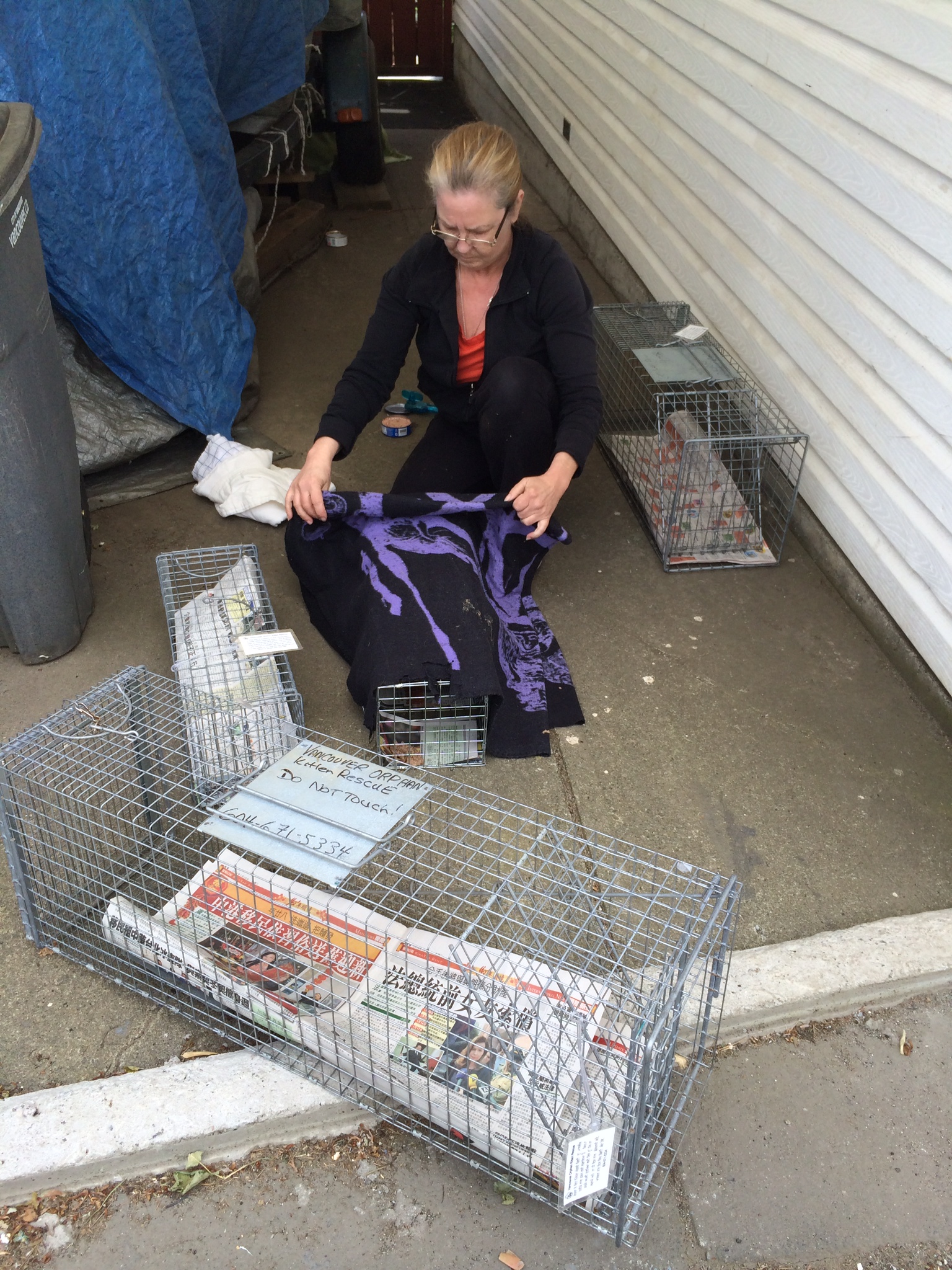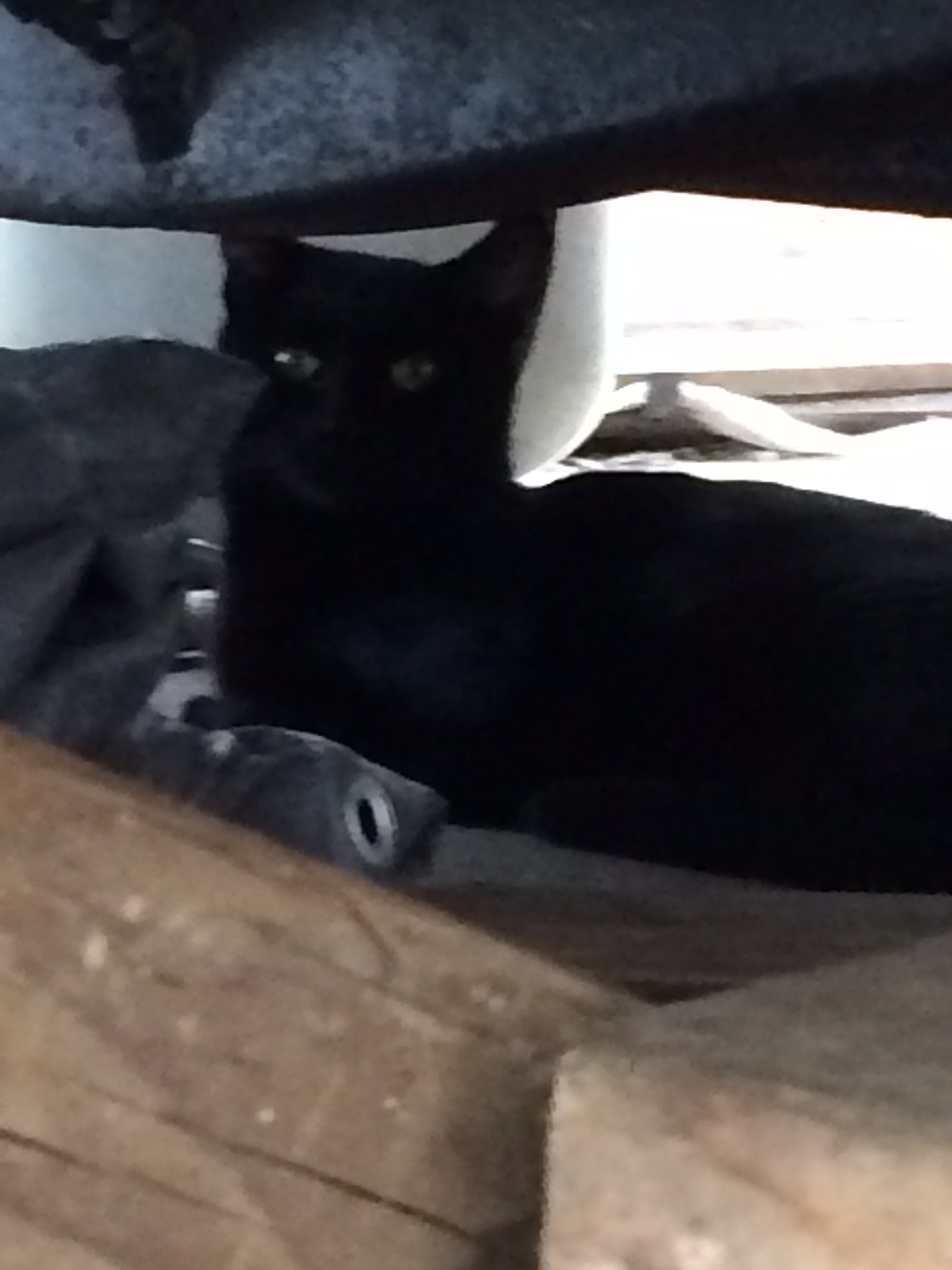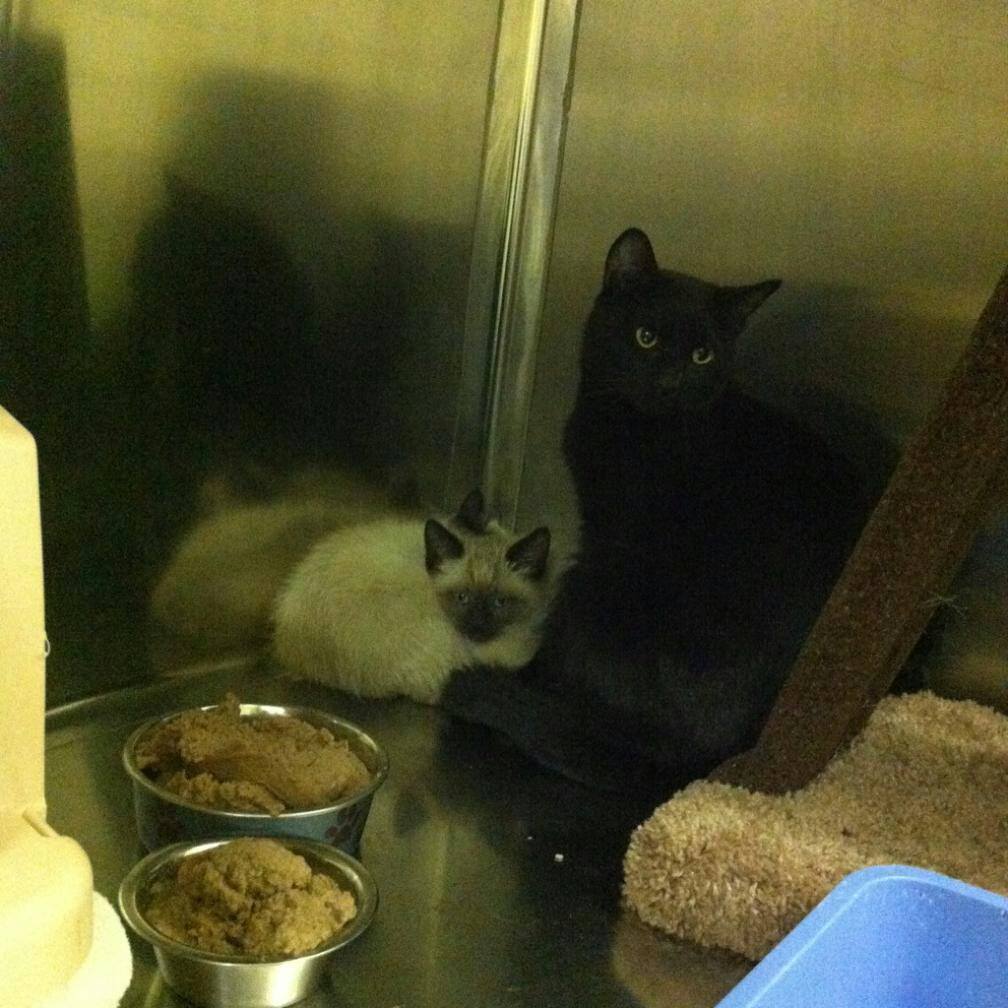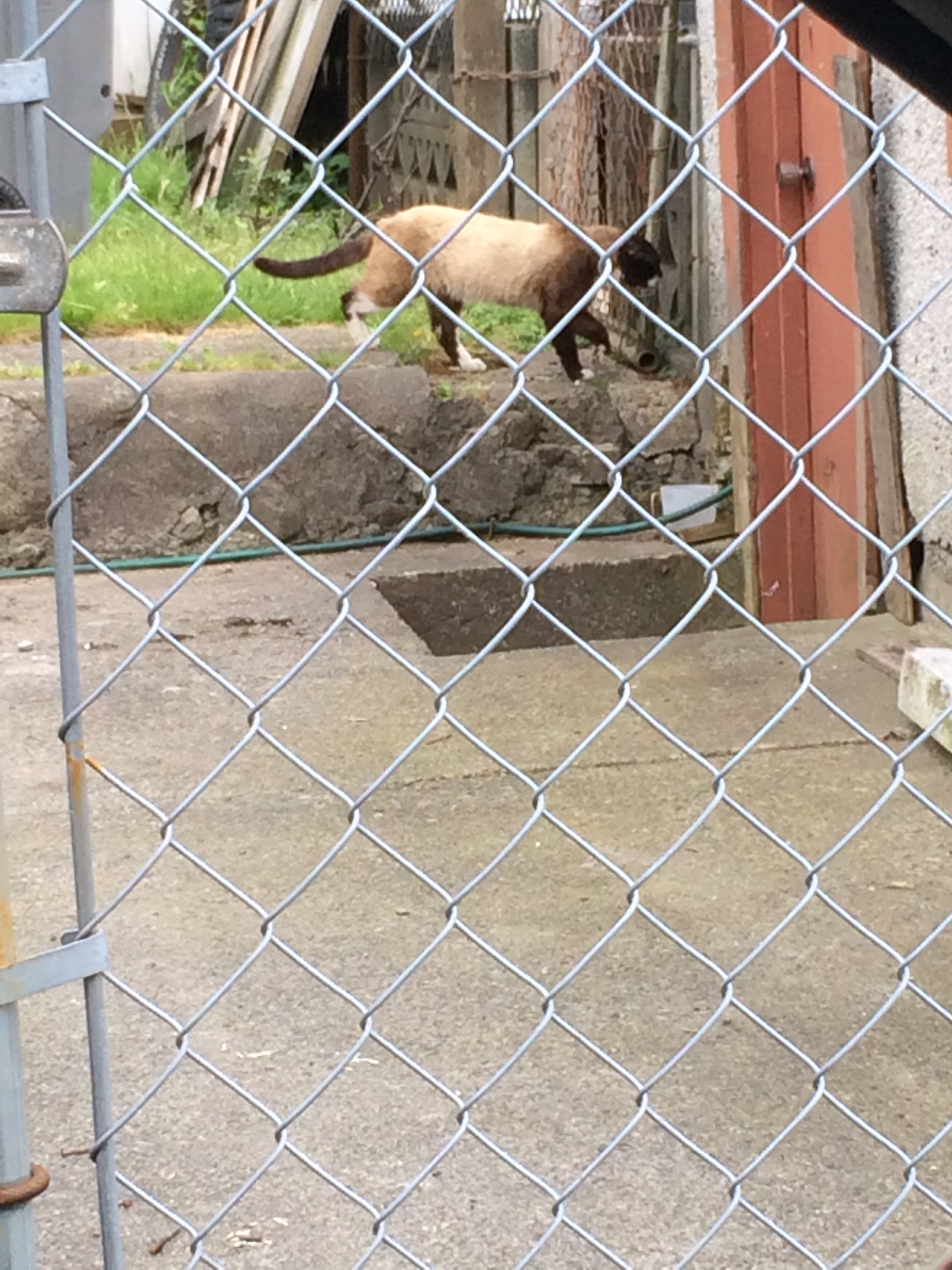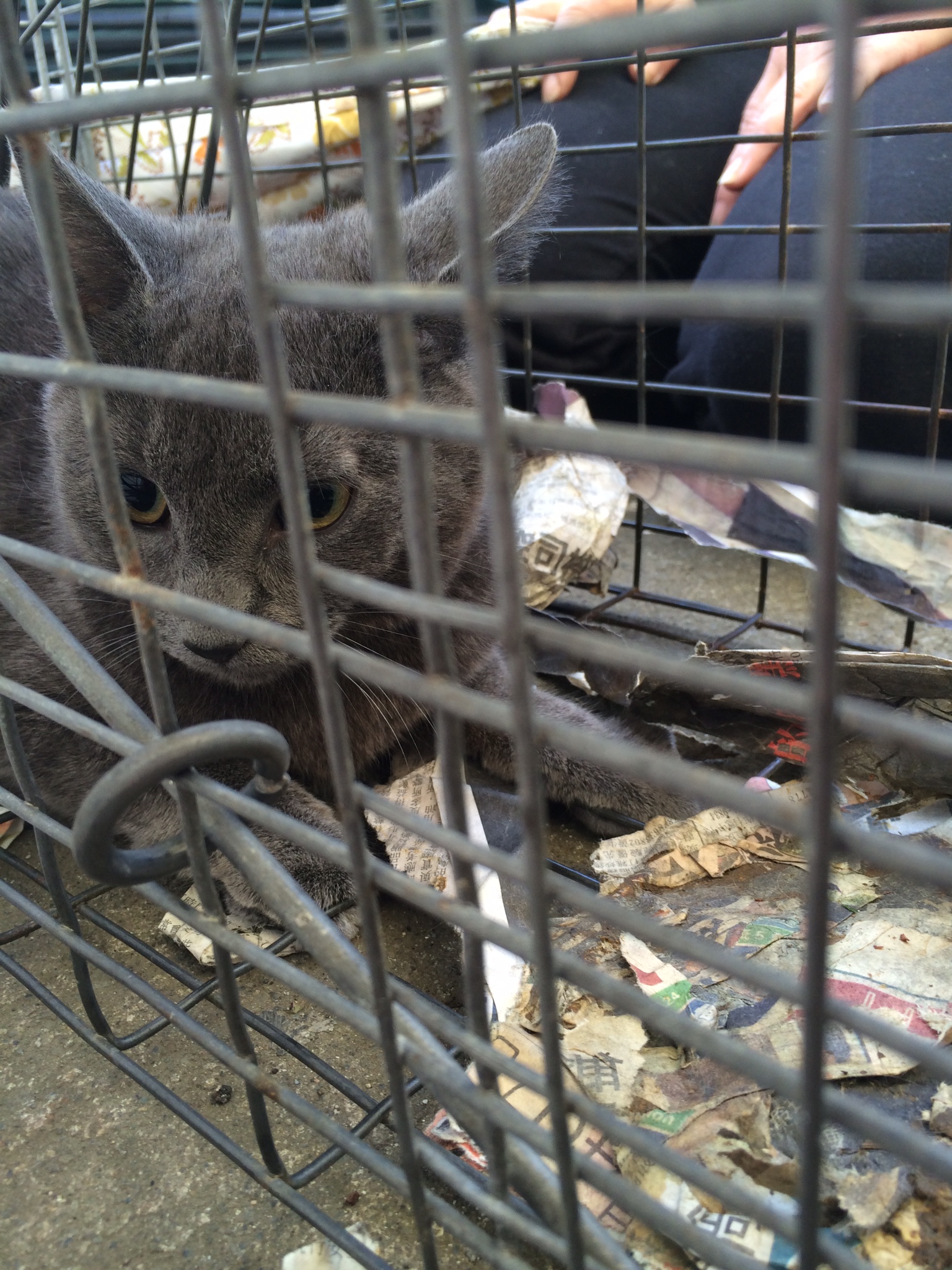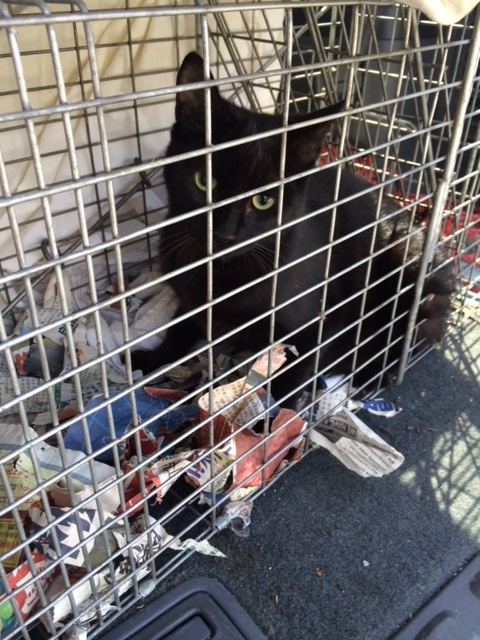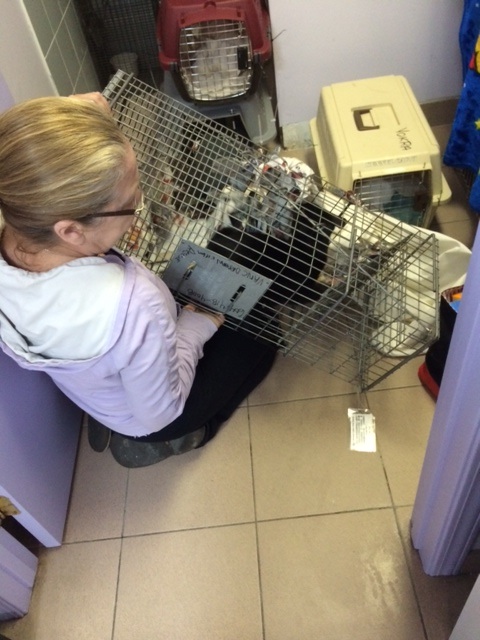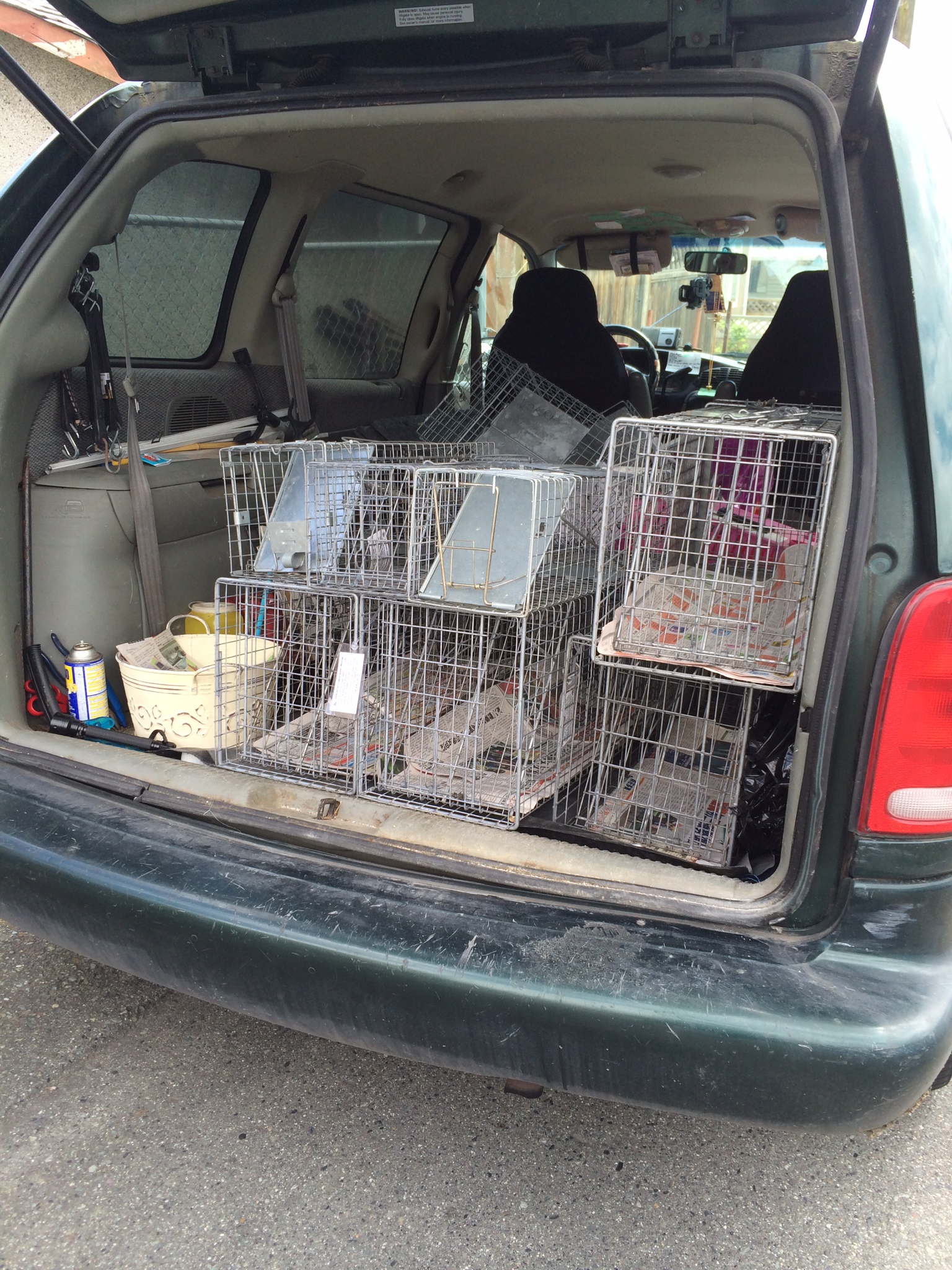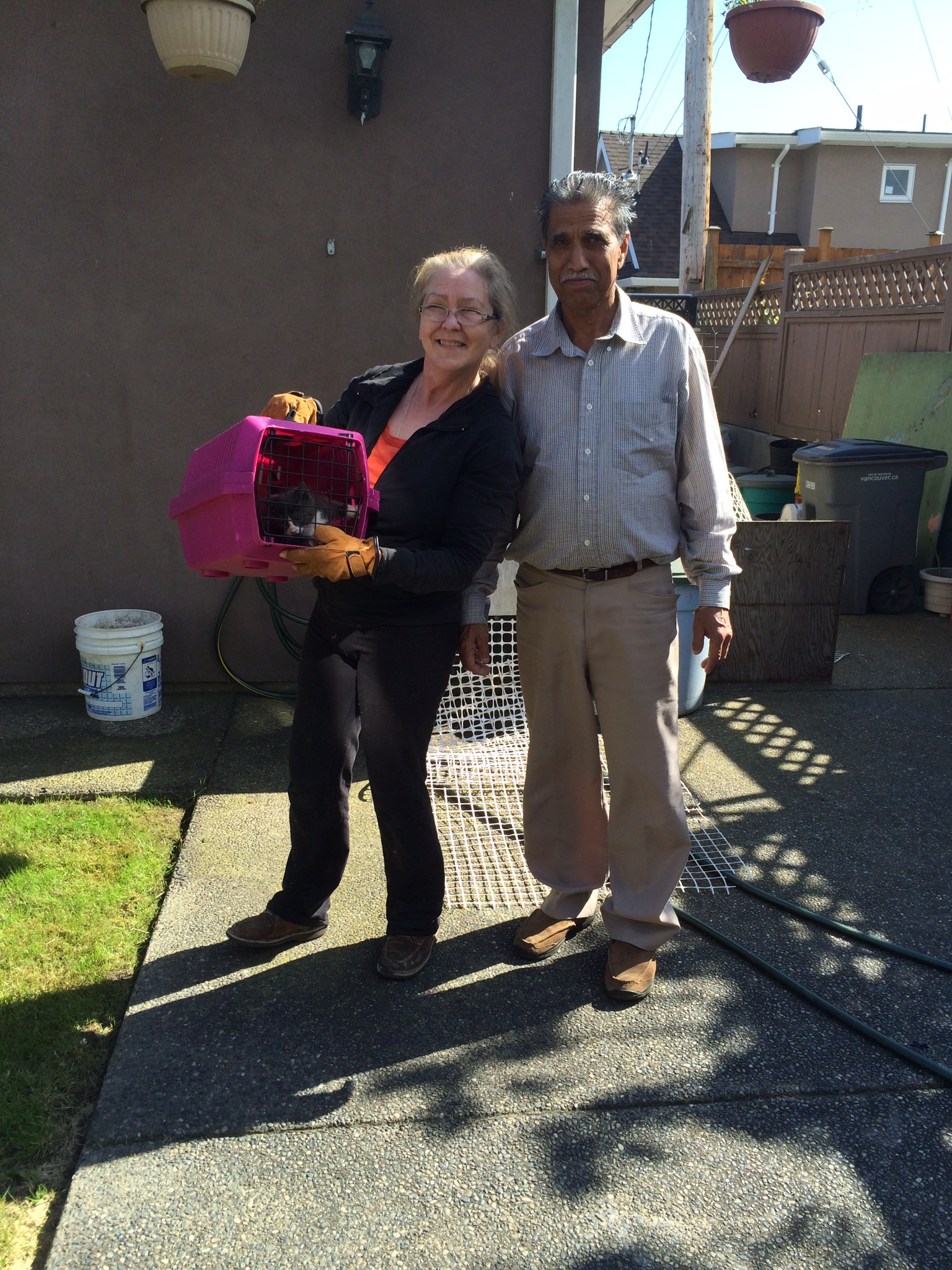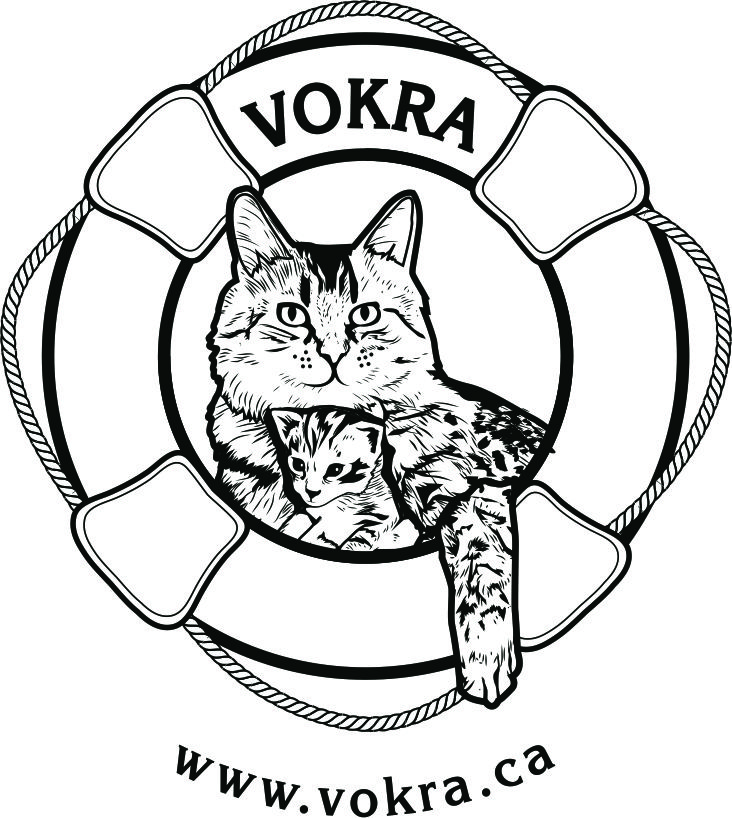As we told you recently, VOKRA’s TNR (Trap-Neuter-Return) program is a large part of what we do. Some might say it’s at the very heart of what we do as VOKRA was founded because of unspayed feral moms and kittens who faced harsh conditions on Vancouver’s streets. Due to our efforts, the number of feral cats in Vancouver has significantly decreased and those left will live out their lives peacefully without having to reproduce litter after litter of kittens.
At VOKRA we love feral cats. Whether they be semi-feral or full fledged, we recognize they deserve our love and attention despite not having had the good fortune of being born indoors. We’ve been lunged at, hissed at and bitten, but we know these cats are only doing their best to look out for themselves the only way they know how. When feral kittens come in spitting and swiping we tame them and they are eventually adopted out. We’re often able to tame semi-feral adults too, though it takes a little more time and effort.
For the truly feral cats, the most humane thing we can do for them is spay and neuter them and return them back to their location. Sometimes though, that space isn’t safe or is no longer available and that’s when our barn program comes in handy. In 2006, thanks to the help of a generous donor, we were able to set up a barn shelter for feral cats who couldn’t be returned. This shelter has become a sanctuary for some of our ferals who are able to live out their lives peacefully with a warm shelter and enclosed outdoor access, along with the care and dedication of our volunteers.
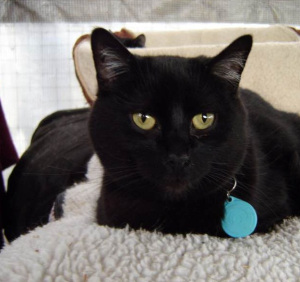
Karona was a beautiful, wonderful cat with a temperamental heart of gold. She swatted and yelped at us before learning to love us back.
It’s not always easy working at our barn location as volunteers have to trudge through months of heavy rain. We currently have 17 volunteers, each of whom monitors the health and wellbeing of the cats in addition to chores and socialization time. Some cats have even been tamed enough over the years to be placed in foster homes and adopted. VOKRA barn manager, Mairi Graves, describes the cats as her “18 surrogates” and feels lucky to have met them all, including Mr Washington, Pharoah and especially Karona, who we lost too soon last year.
While we’re fortunate to have that space available for some cats, it can’t house all of them. Thankfully we have our barn placement program, where we find barn owners who are dedicated animal lovers looking for cats they can employ as rodent population control technicians. In return, they agree to provide food, water and shelter. This program began about six years ago and we have since placed many feral cats in barns across the Lower Mainland.
Janet Cox, who coordinates the barn program, looks for barns that don’t use pesticides and have a low incidence of coyotes. Like adopters, potential barn sponsors are interviewed and VOKRA volunteers drive cats to their new homes as far away as Squamish and Mission. There’s a dedicated “imprint” time of four weeks, during which cats must live inside a large shelter. This allows them to become used to their new area and mark it as their own. After this time, the cats are released and Janet follows up with the barn owners.
Feral cats don’t have it easy by any means – they’ve missed out on the happy lives of many a spoiled house cat. Most feral cats live a short life on the streets and face a death that’s as harsh as their life. Our barn program helps alleviate such burdens because, as Mairi says, “they’re wonderful and often misunderstood creatures who yearn for the same things humans do: shelter, sustenance and love.” As much as we help them, they help us too.
If you’d like to support our feral and barn cat program you can donate here.
Written by Ellen R.
Way back in 2008 a story about our barn cat program appeared on Global TV. Unfortunately the challenges we faced back then are still the same challenges we face today. One of the only things that has changed is we now adopt out more than 1,400 cats per year. Click here to watch the story.
